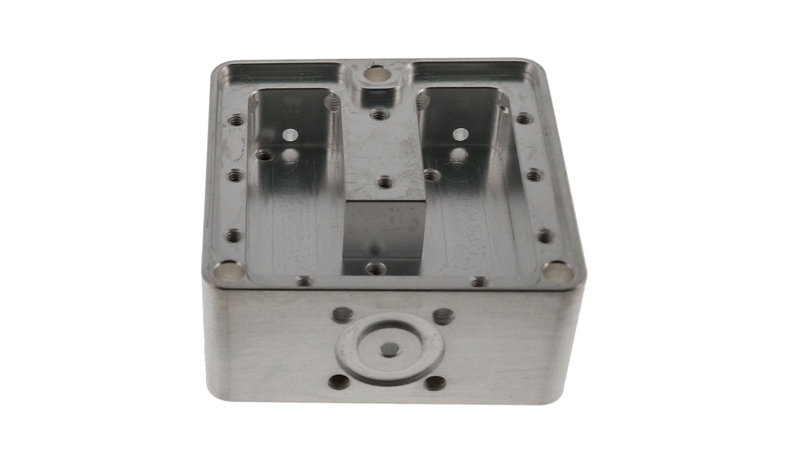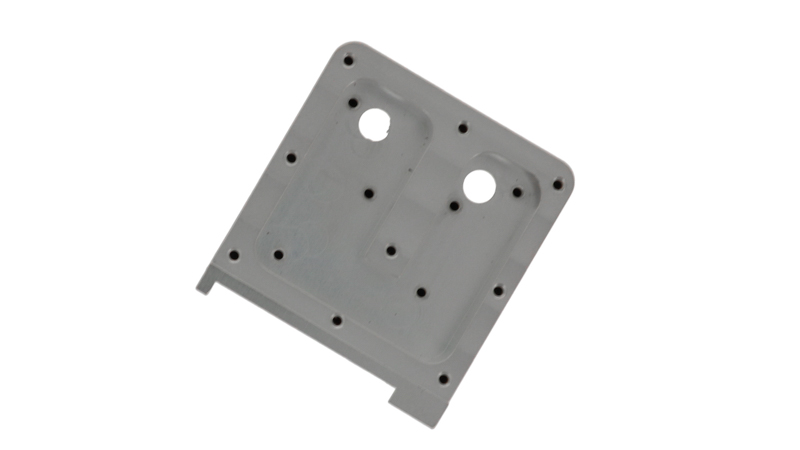Microwave & RF Machining
Metal Craft Machining is a leader in the precision CNC machining of machined aluminum housings for the microwave and RF industries. With our precision CNC milling and CNC turning capabilities, we provide 24/7 service for uninterrupted production runs for lots of 100 to 20,000.
We have provided RF/microwave machined components for such industries as aerospace/defense, satellite, military, and telecommunications in products like amplifiers, attenuators, power dividers, and RF housings. Increasing technological demands mandate smaller, lighter, and more robust precision RF components able to handle greater frequencies with minimal signal loss. In response, Metal Craft Machining delivers high-performance, tight-tolerance solutions.


Radio Frequency (RF) Housings
CNC-machined parts used in RF housings must meet strict design requirements, such as tight tolerances, uniform wall thickness, and a smooth surface finish. The material used must also have low electrical conductivity to minimize signal loss and distortion.
The standard tolerances for CNC-machined RF and microwave parts can vary depending on the specific application and requirements. However, typical standard tolerances for CNC machining RF and microwave parts include:
- Dimensional Tolerance: +/- 0.005 inches (0.127mm) to +/- 0.002 inches (0.051mm)
- Surface Finish Tolerance: Ra of less than 0.5 microns to Ra of less than 0.3 microns
- Wall Thickness Tolerance: +/- 0.003 inches (0.076mm) to +/- 0.001 inches (0.025mm)
- Roundness Tolerance: +/- 0.001 inches (0.025mm) to +/- 0.0005 inches (0.013mm)
- Perpendicularity Tolerance: +/- 0.003 inches (0.076mm) to +/- 0.001 inches (0.025mm)
- Concentricity Tolerance: +/- 0.003 inches (0.076mm) to +/- 0.001 inches (0.025mm)
It is important to note that these tolerances may change based on the specific requirements of the RF or microwave device. The design and manufacturing process must be optimized to meet these requirements to ensure the proper functioning of the device. Using our Siemens NX software, we can run the modeling program to ensure that all of the tolerances are manufacturable.
Surface Finish Selection
Surface finish is an important factor in the design and manufacture of CNC-machined parts for RF applications. A smooth surface finish is critical for ensuring proper performance and minimizing signal loss and distortion in RF devices. Metal Craft Machining has many years of experience managing parts with many different types and combinations of surface finishes to ensure that we meet your stringent specifications.
Reasons why surface finish is important in RF applications:
- Signal Loss: A smooth surface finish helps to reduce signal loss and distortion by minimizing the reflection of RF signals. This helps to improve the overall performance and efficiency of RF devices.
- Improved Electromagnetic Interference (EMI) Immunity: A smooth surface finish reduces the amount of EMI that is generated by the device, improving its immunity to external electromagnetic fields.
- Better Signal Propagation: A smooth surface finish improves the propagation of RF signals, reducing the impact of any imperfections on the surface.
- Increased Durability: A smooth surface finish helps to reduce the amount of stress that is applied to the part, increasing its overall durability and lifespan.
Materials
Metal materials are commonly used in microwave devices due to their high level of precision and accuracy. CNC machining is used to manufacture metal parts that meet exact specifications, ensuring consistent and reliable performance. As these CNC parts are used to provide electrical conductivity in microwave devices, they must be manufactured very precisely to ensure the correct transfer of signals. Along with that, they are typically used to shield the device itself from external electromagnetic interference and to dissipate heat.
Today’s microwave and RF device industry have very demanding standards and Metal Craft Machining understands how critical these specifications are to the ability of any device to operate correctly.
